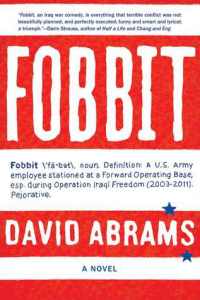Relentless by Simon Kernick
 Friday, September 21, 2012 at 5:45PM
Friday, September 21, 2012 at 5:45PM 
First published in the UK in 2006; published digitally by Atria Books on September 18, 2012
Software salesman Tom Meron describes himself as a dull guy with a dull job. He gets a call from an old friend, a successful attorney named Jack Calley. On the telephone, Meron hears Calley being murdered; with his dying breath, Calley gives the killer Meron's address. After discovering that his wife is missing from work, Meron is attacked by a man with a knife. Meron makes a harrowing escape before being arrested on suspicion of murdering his wife's university colleague, a woman named Vanessa Blake. Meron's wife, Kathy, is also a suspect in Blake's killing, given that her fingerprints are on the murder weapon.
After this setup, the story shifts to Detective Inspector Mike Bolt, who is investigating the apparent suicide of a judge who was also Calley's client. Point of view then alternates between Meron's first person account of his odyssey and third person narratives that follow Bolt or the bad guys.
Simon Kernick peppers the plot with mundane marital drama but fails to flesh out Kathy's character -- a serious omission in a novel that depends so much upon the reader's belief that she would act as she does. Supporting characters are mostly cops and former cops, including Tina Boyd, whose boyfriend died under mysterious circumstances after receiving a tip that revealed the motive for the high level murders. None of the characters have much personality; this is a novel that depends on plot rather than astute characterization. Unfortunately, the plot is problematic.
The entire storyline struck me as improbable -- not an uncommon impression when reading a thriller, but this one requires the reader to accept a motivation for murder that is both contrived and unimaginative. The plot advances only because Meron makes some inexplicably stupid decisions: he doesn't call the police when he hears Calley being murdered, and he later runs from the police for no apparent reason. For a software salesman, Meron is also a remarkably adept fighter. The killer tries to make his murders look like suicides but he leaves identical suicide notes at the scenes of the crimes -- making him one of the stupidest murderers to grace the pages of a crime novel. A lawyer's shockingly unprofessional behavior makes little sense but the plot hinges upon it. Kathy's behavior is preposterous (for reasons I can't reveal without spoiling the novel's biggest surprise). The likelihood that her fingerprints would have been found on the murder weapon is virtually nil.
While Kernick is a capable storyteller, his prose style is undistinguished. On a more positive note, the story moves at a relentless pace, making the novel a quick and easy read, and Kernick earns points for cleverness by giving the plot a couple of unexpected twists as the story nears its end. Still, Relentless lacks the pizzazz that the title promises and that the best thrillers deliver. Relentless isn't by any means an awful book, it just isn't a particularly memorable one.
RECOMMENDED WITH RESERVATIONS



